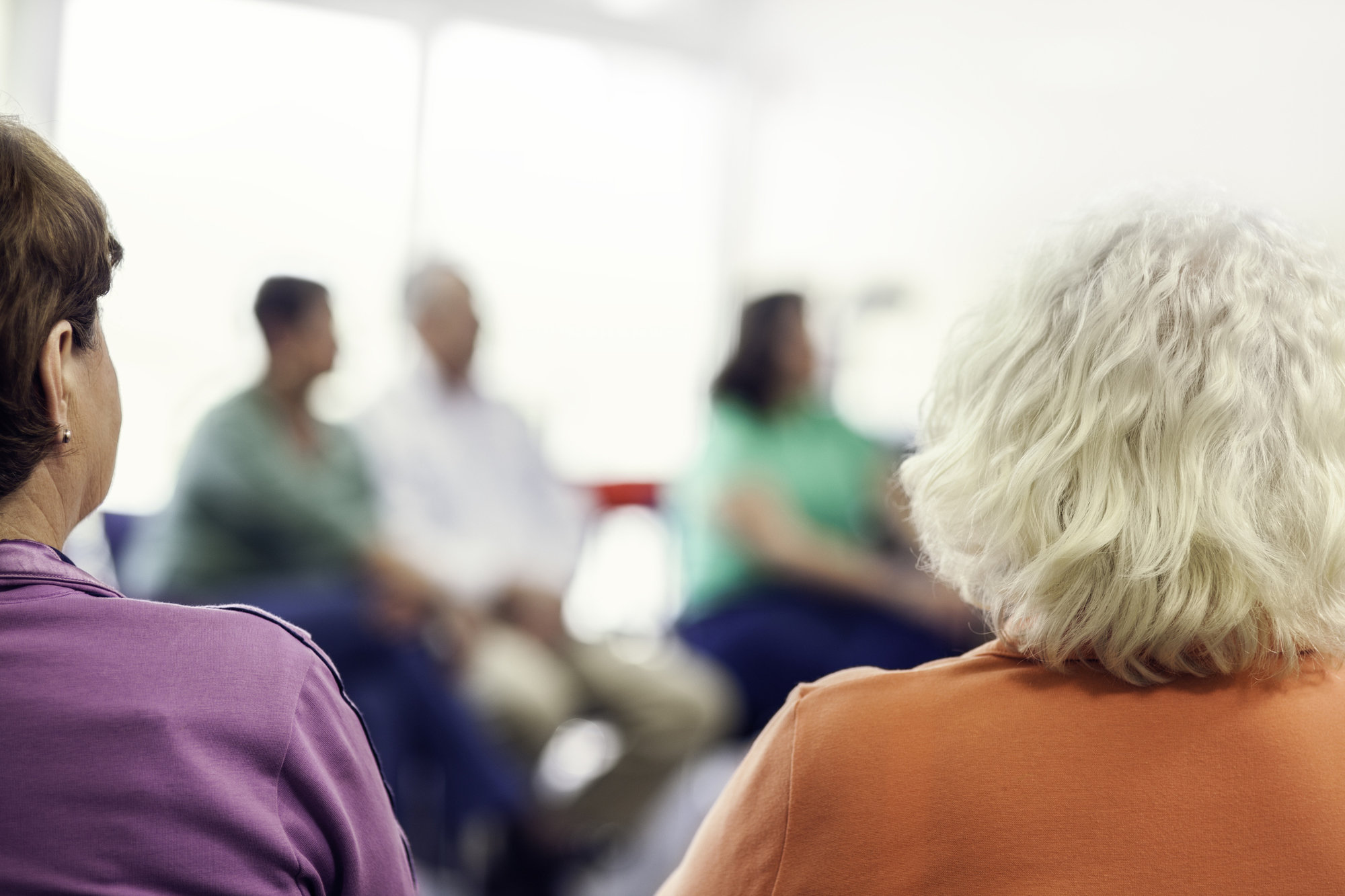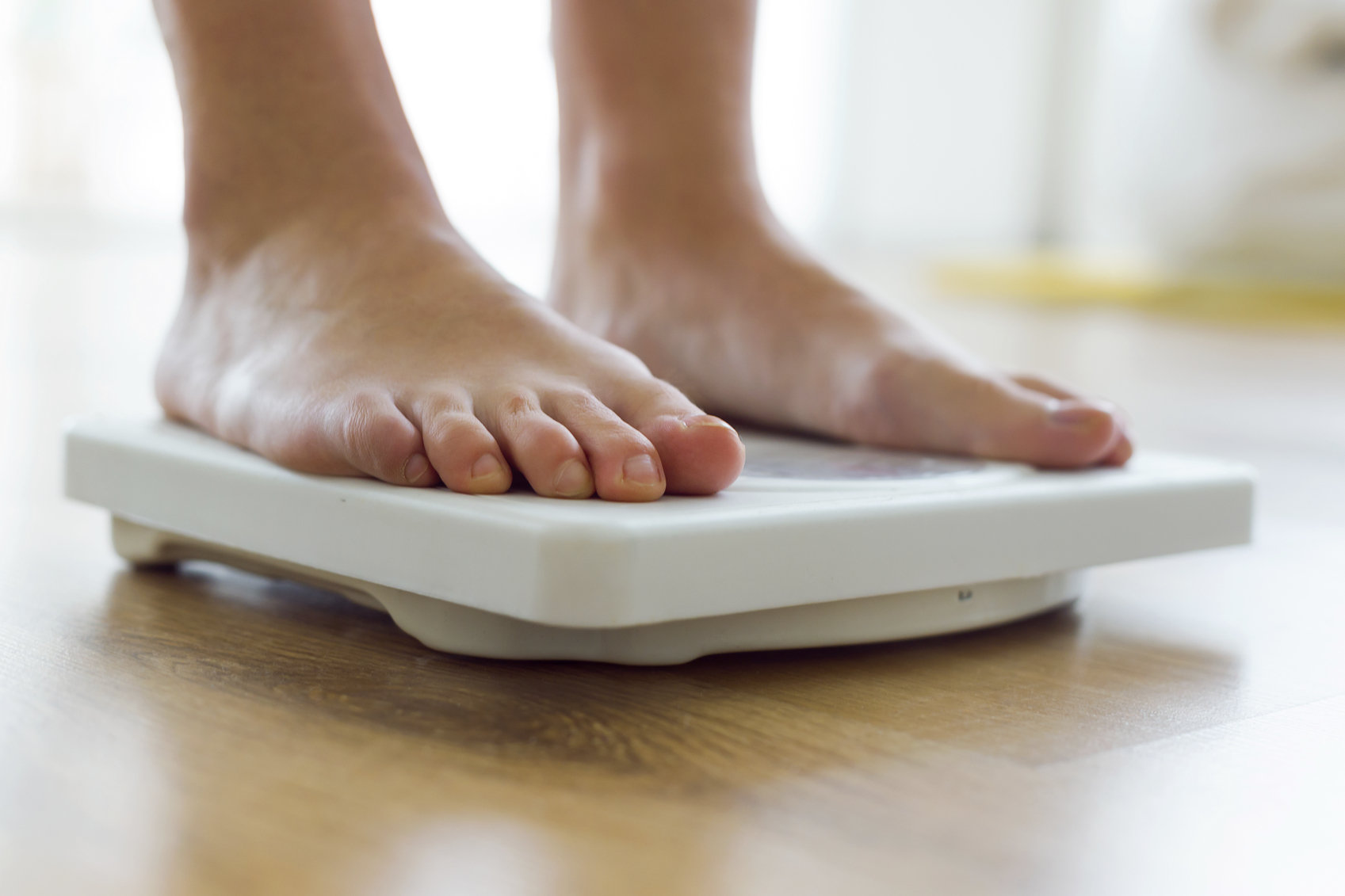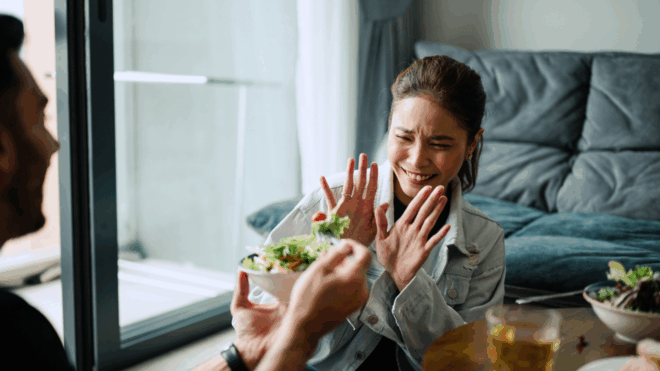“Raise your hand if you’ve been abstinent for 30 days.”
One woman raised hers. She walked humbly to the podium and collected her chip while the room applauded. I plastered a smile on my face and tried desperately not to engage with the nagging thoughts in my head. “I’m not going to enough meetings. I’m not doing enough service. No wonder I can’t resist a cupcake.”
It wasn’t always like that. There was a time when the tapes that would play in my head were positive, hopeful, gentle. But that seems like a lifetime ago. At what point down the road of my recovery did things change?
By now, you’ve heard stories of women who have ditched diet culture or recovered from bulimia or anorexia and are now learning to love their bodies. I love these stories.
My story, however, is a bit different. And before I launch into it, I need one thing to be heard loud and clear: Your weight doesn’t determine whether you have an eating disorder. It is, as it usually is in regards to anything not involving zip lining or sky diving, irrelevant.
I entered Overeaters Anonymous five years ago for a few reasons, but here is the most important one — there were times when I wanted to stop eating, but I couldn’t. I wasn’t choosing to continue or deciding a donut was no big deal or saying “eff your beauty standards.” Something inside me was screaming to stop and I gagged it with whatever food I could get my hands on. And the minute I realized what I was doing, I knew it was affecting everything in my life. It was numbing me out, making intimacy with my husband impossible, leaving me checked out at work. I had become an irritable, reactionary creature who spent her days in white-knuckled panic and evenings in catatonic oblivion. Food was a constant crutch.

This realization was my bottom. The next morning, I went to my third-ever OA meeting and kept going. The people were nice and welcoming. Some talked graphically about how they ate and navigated life in a fat body. Their candor was refreshing. At this point, body positivity was not a term in my vernacular, but I had already done so much work around accepting and loving my body as best I could. When other members talked about doing the same while “in the food,” something in me shifted. I decided then that while my body acceptance was still a good thing, it was also giving me carte blanche over food. If it was OK to be fat, then it was OK to eat everything I wanted. And thus, the first bad seed was planted.
The second dose of bad medicine was the concept of abstinence. Obviously, one can’t abstain from food like an alcoholic abstains from booze, but some people choose to cut out certain food items, or all food between meals. While working the first few steps in the program, I was asked to cultivate my own idea of what abstinence looks like. Since I felt my eating had become more mindless and less in tune with biological need, all I really wanted to do was be able to eat when I was hungry and stop when I was full.
As I became more adept at what I now know to be the practice of mindful eating, the weight started to melt off.
Relationships improved. My anxiety lessened. I was able to tackle problems head-on without fretting over the results. Yet none of these things are as quantifiable as sizes shrunk and pounds shed.
Recovery from food obsession was exhilarating, bringing with it a freedom I had never before felt around food. But somewhere along the way, it was simply replaced by another obsession: weight-loss as a metric of success.
The numbers game wasn’t just in my head. In meetings, others would list how much weight they had lost. They would count abstinent days. They talked about measured food plans. My eating was never “perfect.” I could not string more than a few weeks of abstinence together. The only numbers I could confidently advertise were my four years in recovery and my 50-pound weight-loss. And then suddenly, I stopped losing weight. It was exactly like a roller coaster screeching to a halt because by then, it really had become a thrill ride. I was high off my ass on weight-loss. That’s when I started scrambling.

I cut out bread for 30 days. I gave up sweets for another month. I weighed once a week. Nothing was moving the needle. I bit the bullet and tried a food plan. I couldn’t stick to it and felt dejected and defeated. My sponsor told me to be patient but also told me to “just do it” when it came to following the food plan. I thought, “If I can ‘just do’ anything, why the fuck am I in a 12-step program?”
This was a distressing time. My program was basically my religion and I was having a full-on existential crisis. I kept asking why it stopped working, unable to see that wasn’t the case at all. I just stopped losing weight. And with no critical reason to lose more, I was beating my head against the wall for nothing.
After a particularly enlightening week, I told my sponsor I was ready to give up my weight obsession. If this was the weight I was going to be, that would be OK. After a pregnant pause, she said, “Great! But if you keep doing what you’re doing, I think you’ll still lose the weight.”
The weight. There it was, the most stigmatized way to refer to part of my body.
To talk about a portion of my weight as something to be removed, like a wart or tumor, was the final nail in the coffin. Never mind the fact that I could no longer tolerate the vilification of certain foods and the number-centric success markers; I realized this program was simply incompatible with fully, radically loving my body. For everything it had given me, it cost me that love. I desperately wanted it back.
With that, I said thank you and goodbye to OA. I’m now working a different program around my eating disorder, one that excludes talking about numbers and abstinence or any form of rigidity. My recovery is exciting and invigorating again, and as for my weight, I couldn’t tell you. I haven’t stepped on a scale in 124 days. That’s one number I don’t mind counting.
National Eating Disorders Awareness week is February 26 through March 4. If you suffer from obsessive food thoughts and behaviors that are impacting your life, visit nedawareness.org for more information.




